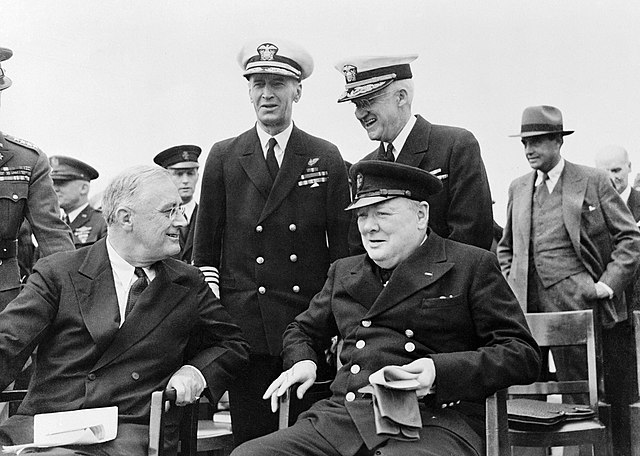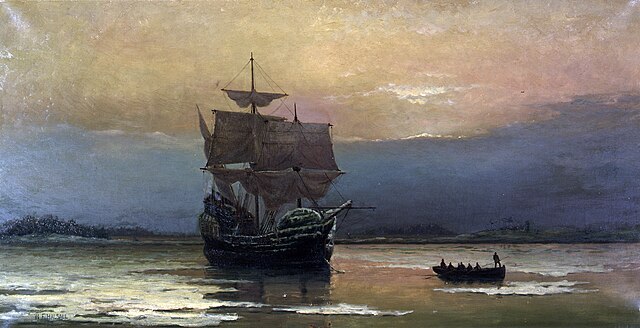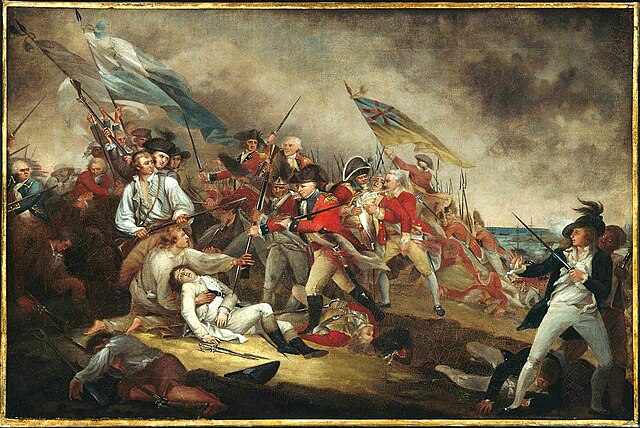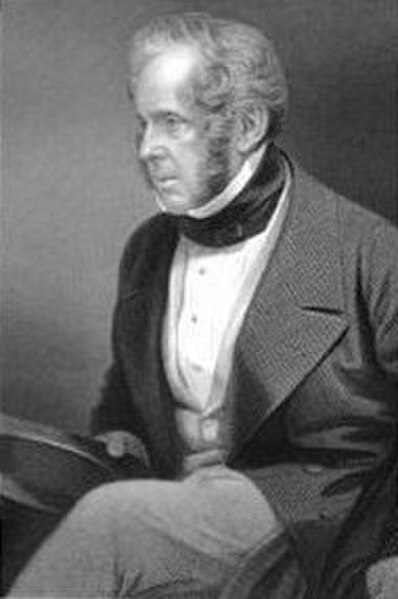United Kingdom–United States relations
Relations between the United Kingdom and the United States have ranged from military opponents to close allies since 1776. The Thirteen Colonies seceded from the Kingdom of Great Britain and declared independence in 1776, fighting a successful revolutionary war. While Britain was fighting Napoleon, the two nations fought the stalemated War of 1812. Relations were generally positive thereafter, save for a short crisis in 1861 during the American Civil War. By the 1880s, the US economy had surpassed Britain; in the 1920s, New York City surpassed London as the world's leading financial center. The two nations fought Germany together during the two World Wars; since 1940, the two countries have been close military allies, enjoying the Special Relationship built as wartime allies and NATO partners.
UK Prime Minister Rishi Sunak greets US President Joe Biden at the 2022 G20 Bali summit
UK Prime Minister Winston Churchill and US President Franklin Roosevelt at Atlantic Conference, August 1941
The Mayflower transported the Pilgrims to the New World in 1620, as depicted in William Halsall's The Mayflower in Plymouth Sound, 1882.
John Trumbull's portrait depicting The Death of General Warren at the Battle of Bunker Hill in 1775
The Trent Affair was a diplomatic incident in 1861 during the American Civil War that threatened a war between the United States and Great Britain. The U.S. Navy captured two Confederate envoys from a British Royal Mail steamer; the British government protested vigorously. American public and elite opinion strongly supported the seizure, but it worsened the economy and was ruining relations with the world's strongest economy and strongest navy. President Abraham Lincoln ended the crisis by releasing the envoys.
The San Jacinto (right) stopping the Trent
U.S. Secretary of State William H. Seward (1801–1872) (c. 1860–1865)
British Prime Minister Henry John Temple, 3rd Viscount Palmerston (1784–1865)
John Russell, 1st Earl Russell (1792–1878)








